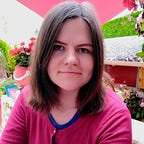Professional transition from academia: Part I. From Ph.D. to coding
I have been in research since the beginning of my professional journey. I am from Russia, and I started my studies by going to Moscow State University, faculty of Mechanics and Mathematics. I finished there my Master’s studies in fluid and gas dynamics, then worked in a research lab for a while on an astronomy-related project, and continued my research journey in the Paul Sabatier University in Toulouse, France, where I got my Ph.D. degree in meteorology.
After that, I have been considering to continue staying in academic research. Nevertheless, I wasn’t able to find many postdoc offers that corresponded to my profile and where I could apply, and my applications for postdoc positions either were either without a response or resulted in a rejection.
There might have been different reasons why it was like this, but one of the main reasons I can think of, is a non-linear career path. Even though I have been in research for many years, it happened so that I had to change the topic several times. And this, as I felt, makes things more complicated. I saw some people who had very diverse research interests, but not many. Usually people start with a Master’s in some field, then they continue in the same or a very similar field in their Ph.D., and then do a postdoc in this field. And when you have been working on different topics, even though you can argue that it shows that you are a fast learner and can adapt easily, it makes people ask questions why you couldn’t stick to one thing, and makes you sometimes feel like an imposter, especially when you don’t have a mentor with various not-very-related research interests.
So while I have been looking for a postdoc or a research engineer job and wasn’t getting any success, I felt very confused with what I should do. And eventually I started looking around and seeing other people who got a Ph.D. in STEM and decided to transition to IT-related fields. I started taking online courses in Python as I realized that Python is very often required in research-related positions, and then I took some courses in machine learning, then web development… and then I became addicted.
It was like a series of those “Aha!” moments when I was more and more realizing that programming seen not as an obstacle on the way to achieving scientific goals so we have to struggle through it, but as a means to actually create things, is just magical. I loved coding for different reasons: to analyze things, or to deploy something online, or to make a web interface. It was such a different experience and this variety of different frameworks and languages made me feel like I want to know it all. The only problem that I got is how to learn all that I want to learn.
I am still in this process and I am trying to take things slowly. I understand that it is not possible to “quickly” learn several new programming languages and multiple frameworks.
My current goals is to focus on data science (Python, machine learning, deep learning) and later in the future I would like to learn more about webdev (JavaScript, Django).
Thank you for reading!
